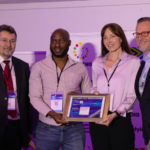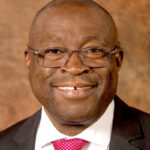With South Africa witnessing a rapid growth in private sector investments in the form of Independent Power Projects, the continent must ensure that it becomes an active participant in these projects, says Minister of Mineral Resources and Energy Gwede Mantashe.
“We note that a similar trend is emerging on the rest of the continent. However, we must ensure that Africans become active participants in these projects. We cannot sit idle and allow these projects to be wholly owned and dominated by foreign nationals,” the Minister said on Tuesday in Cape Town.
Addressing the 2022 Africa Energy Week conference, Mantashe called on African leaders to deliver universal access to electricity, as it is critical for economies.
“An economy with no energy, in particular electricity, cannot serve the interests of any nation, and thus, is only destined to collapse. There can be no Africa we want without a stable economy that is based on inclusive growth, sustainable development and with universal access to energy.
“Africans are suffering from energy poverty, and this has been the case for too long that we tend to forget that energy poverty is an anomaly. We must turn this abnormality around; Africa must no longer wait,” Mantashe said on Tuesday in Cape Town.
The Minister emphasised that Africa’s growth and prosperity depends on solving the energy poverty that has engulfed the continent and thus ensure security of energy supply to its people.
Recent statistics show that about 600 million Africans, 43% of the population, do not have access to electricity.
“Our indictment as leaders on this continent is to create a new energy normalcy, let us have a “New Deal on Energy in Africa”. A new deal that is people cantered and guarantees continental economic growth, development, and industrialisation,” the Minister said.
He said while the world turns its focus to reconfiguring energy systems to be supported by clean energy systems, Africans are still grappling with achieving universal access to energy.
“Despite impressive economic growth, many African countries have seen uneven progress on health, education, and energy access.
“As domestic resources become more critical to financing these needs, new natural resource discoveries – oil, minerals of the future, and gas – offer a new source of revenue for advancing human development and supporting countries on the path to self-sufficiency,” the Minister said.
Mantashe said Africa is blessed not only with fossil fuels-based natural resources but is rich in renewable primary energy resources too but poor in energy supply and access.
“Our continent, Africa, has potential for 11 terawatts of solar energy, 350 gigawatts of hydropower, 110 gigawatts of wind power, and an additional 15 gigawatts of geothermal potential. Yet, the continent generates far less electricity for her people who continue to be trapped in energy poverty. This is unjustifiable and can no longer continue.
“As African leaders, we must marshal these resources to deliver on a promise of universal access to energy on this continent and a promise of a prosperous Africa,” he said.
In June this year, the International Energy Agency published the Africa Energy Outlook report, which projects an increase in energy demand for Africa.
Notably, the report acknowledges gas as critical primary energy source for South Africa to meet this demand while on the just transition journey.
“The report further projects Africa’s domestic demand for oil and gas to account for around two thirds of the continent’s production between now and 2030. Undoubtedly, this puts pressure on the continent’s energy leadership to develop well-functioning infrastructure to support Africa trading with itself.
“In advancing our commitment to intra-Africa trade, we have entered into Memorandums of Understanding (MoUs) with several countries on this continent, mostly on the minerals and energy sectors. These must not gather dust in our offices but must be implemented rigorously so that they serve their desired purpose in our continent,” the Minister said.












